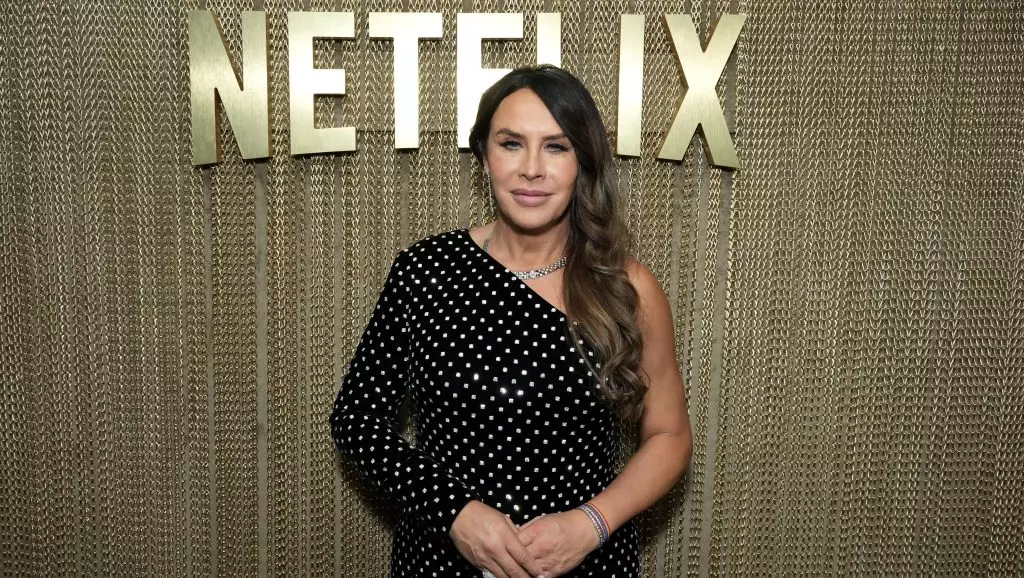In a world where social media can quickly turn praises into pariahs, Karla Sofía Gascón has found herself at the epicenter of a storm that has both threatened her career and challenged societal perceptions of accountability and forgiveness. Gascón was on the verge of making history as the first openly transgender actress to win an Academy Award for her performance in *Emilia Pérez*. However, social media whispers from her past erupted into a cacophony as journalist Sarah Hagi unearthed problematic posts from Gascón dating back to 2016. In a landscape that is increasingly unforgiving, Gascón’s narrative raises important questions about the intersection of artistry, personal expression, and public scrutiny.
The Weight of Words: A Reflection
Words carry weight. This truism has become painfully evident for Gascón, who once described Islam in derogatory terms and labeled George Floyd using disparaging epithets. Her critical comments on cultural moments and figures, intended perhaps as provocative or candid reflections, have morphed into liabilities that threaten her public persona. The discourse surrounding her past remarks illustrates a broader cultural phenomenon where social platforms become the relentless record keepers of our thoughts, opinions, and mistakes. What once may have been fleeting sentiments now necessitate scrutiny not only from the public but from the very industries that support artistic endeavors.
Though some might argue that everyone has the right to evolve and reconsider their viewpoints, Gascón’s trajectory has been less about growth and more about grappling with the consequences of her history. In the aftermath of her posts resurfacing, she has oscillated between offering half-hearted apologies and adopting a defensive posture, claiming that a conspiratorial campaign has targeted her. This dichotomy raises fundamental queries: can we truly separate artistic merit from personal missteps, and how do public perceptions shape individual realities?
The Industry’s Indifferent Embrace
In a turn of events that highlights the duality of fame, Netflix’s relationship with Gascón is particularly revealing. Initially, the streaming giant appeared to distance itself from her amidst the outcry. Yet, this estrangement was short-lived; she was invited back into the fold at the Oscars, signaling an uncomfortable reconciliation between public outrage and commercial interests. Co-CEO Ted Sarandos expressed a willingness to collaborate with Gascón again, stating the need for “grace” in the face of human error. This raises a striking contradiction: while Gascón has been publicly vilified, the machinery of Hollywood continues to churn, often prioritizing profitability over integrity.
The lopsided response from the industry serves as a reminder that the entertainment business is, after all, less about the purity of the messages conveyed and more about the bottom line. This contradiction leaves a bitter aftertaste, particularly for those who see Gascón’s comments as intolerable. It invites deeper introspection regarding what we, as a society, value in our artists: is it the art they create, or the personal ethics they espouse?
Clashing Views: A Cultural Mirror
The reactions to Gascón’s situation reveal a fractured cultural landscape. The outcry against her statements underscores an essential dialogue about the responsibilities of public figures. These individuals wield influence and their words can shape narratives, sometimes toxically. Yet, one must also consider Gascón’s assertion that she has always fought against hate throughout her life. Is it fair to retroactively judge someone solely based on past utterances when they claim to have since evolved?
Amidst this chaos, Gascón challenges her critics to confront their motivations: “What is it about me that offends you?” This question underscores a deeper societal conflict—between personal accountability and the mercilessness of a culture that sometimes seems to delight in the downfall of those who misstep. It’s a complicated dialogue that raises fundamental issues of redemption and the capacity for personal transformation.
Karla Sofía Gascón’s journey serves as a compelling case study—a compelling mixture of resilience and regret, embodying the challenges faced by public figures in our hyper-connected society. While her narrative is painful, it also provides an opportunity for critical reflection about who we choose to support, condemn, and forgive.


Leave a Reply